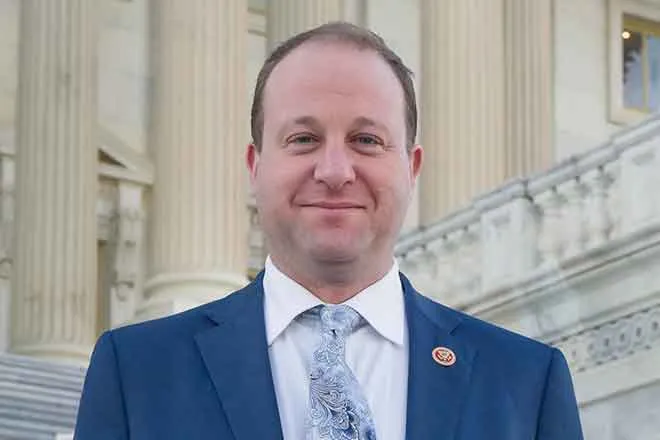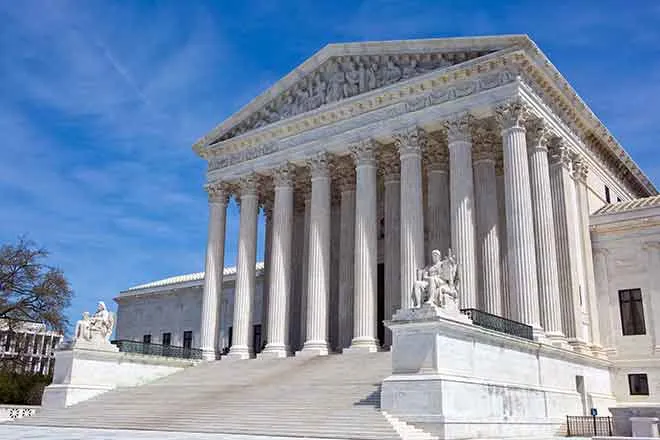
Polis opposes proposal to shift Air National Guard authority from governors
(Colorado Newsline) Colorado Governor Jared Polis and leaders in other states oppose a U.S. Air Force proposal that would shift authority over space units of the Air National Guard from the governor to the federal government.
The proposal would assign authority over the units to Space Force. It’s included as part of the 2025 National Defense Authorization Act, which Congress approves every year to fund the military.

Polis, a Democrat, said the move would threaten the structure and even existence of the National Guard, as well as its ability to respond to national emergencies. Governors can activate the National Guard to help with emergencies within the state, as Polis has done during the 2021 Marshall Fire in Boulder and during the peak of the COVID pandemic.
“This direct override of gubernatorial authority to exercise control over the units that are permanently based or removed from their respective states flies in the face of over 120 years of military tradition, organizational structure and efficacy, and precedent,” Polis said in an April 2 letter to Department of Defense Secretary Lloyd Austin.
Last fiscal year’s NDAA approved a feasibility study on the consolidation or transfer of space functions of the National Guard to the Space Force. Colorado lawmakers in Congress have supported the idea of establishing a Space National Guard, which would take members of the existing Air National Guard and Army National Guard who perform space-related duties and place them under the command structure of the Space Force.
Service members who join the Colorado Air National Guard take an oath to serve not only the United States but also Colorado, and Polis said the potential of removing them from the state to continue their work is not a decision they should have to make. He also said a majority of Air National Guard space operators would not transfer to U.S. Space Force because they would want to remain service members in Colorado.
“As their Commander-in-Chief, I cannot stand idly by as the servicemembers I am charged with leading are faced with the decision to either leave military service, or serve in a manner that they did not originally agree to,” Polis said.
Retired Maj. Gen. Francis McGinn, president of the National Guard Association of the United States, said the proposal “has the look and feel” of something getting “snuck into” the NDAA without proper discussion, as it was brought up late in the consideration of the 2025 version of the act.
“Air National Guard space professionals and their equipment, by law, belong to a governor until mobilized by the president,” McGinn said in a statement. “Governors have long had a vote in these matters, and they deserve one here.”
The National Governors Association, for which Polis serves as vice chair, also opposes the proposal. He and Utah Governor Spencer Cox, a Republican who chairs the association, said in a statement that legislation altering National Guard authority “will negatively impact future security missions, military readiness, recruitment, retention, and Guard infrastructure across the nation.”
“Governors on both sides of the aisle call for the immediate discontinuation of legislative proposals that endanger or deny the full and legitimate authority of Governors to act in the capacity of Commander in Chief to their respective National Guard across states and territories,” the statement reads.
Other states that would be affected by the change include Alaska, California, Florida, Hawaii, New York and Ohio.
Colorado Newsline is part of States Newsroom, a nonprofit news network supported by grants and a coalition of donors as a 501c(3) public charity. Colorado Newsline maintains editorial independence. Contact Editor Quentin Young for questions: info@coloradonewsline.com. Follow Colorado Newsline on Facebook and Twitter.
















